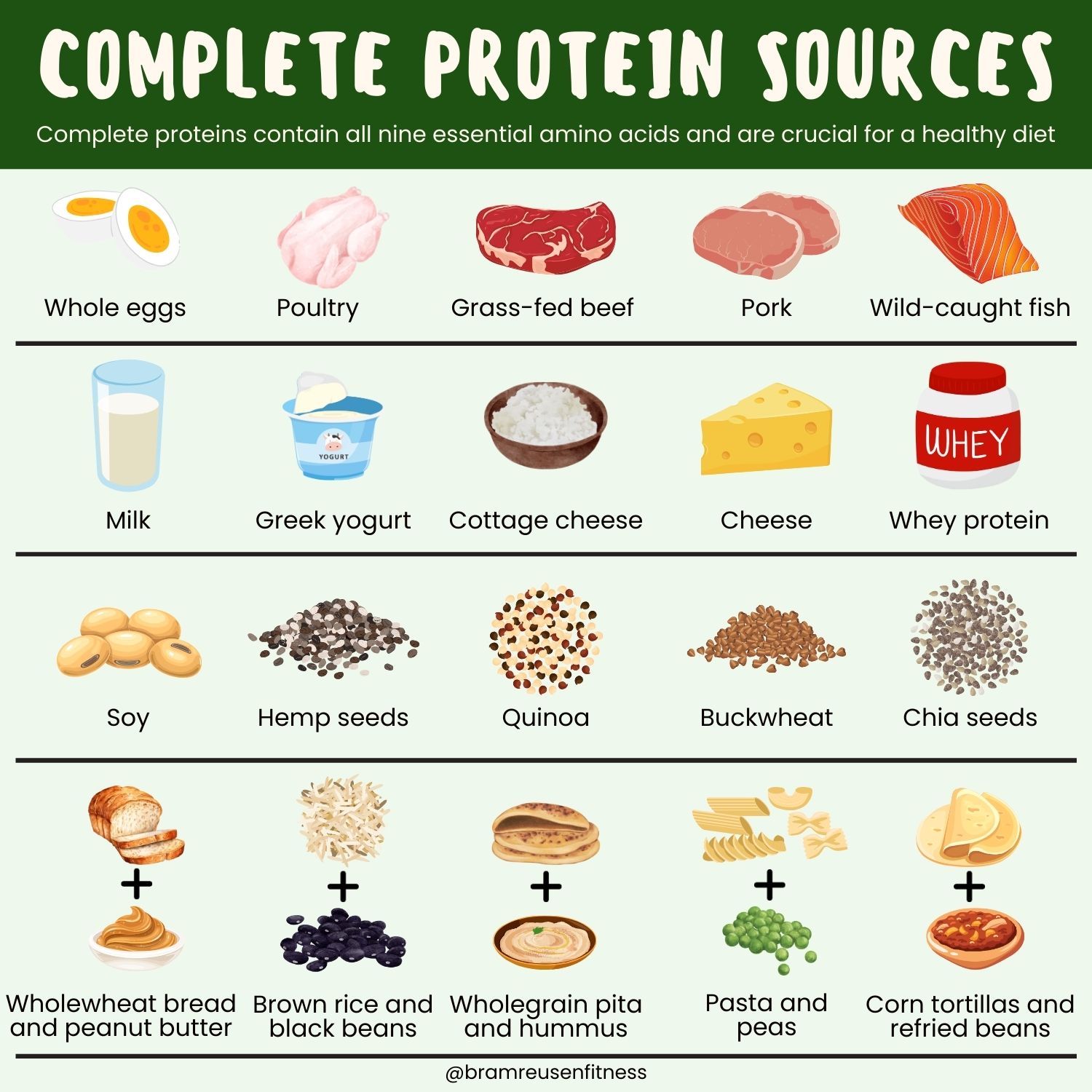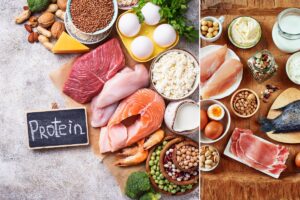Eating sufficient amounts of protein on a daily basis is crucial to your overall health and well-being. This is because protein plays a vital role in nearly all of your bodily processes and tissues, from muscles and bones to energy production, oxygen transportation, and even your immune system.
Therefore, it’s essential to make sure that your diet includes plenty of protein. Below, I’ll explain several reasons to prioritize in your diet and why eating more protein may be a great idea.
What Is Protein?
Protein is the second-most abundant molecule in fat-free bodily tissues, after water. It’s a group of various organic molecules that are made up of carbon, hydrogen, oxygen, and nitrogen.
All proteins are combinations of amino acids. While there are hundreds of amino acids found in nature, the human body requires only twenty to function properly.
Of those twenty amino acids, nine can’t be produced by your body, requiring you to consume them in your diet. They’re known as “essential amino acids” or EAAs.
Those twenty amino acids can combine to form innumerable different proteins, all of which play an important role in how your body functions.
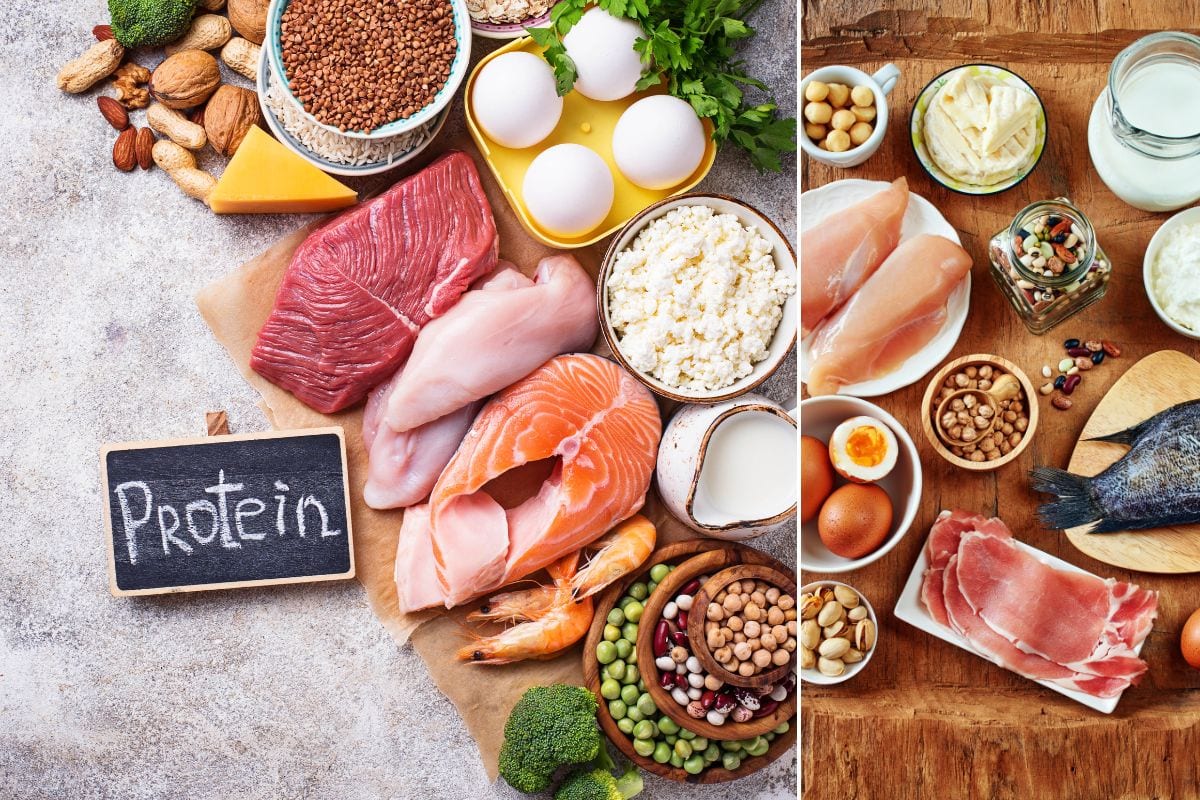
Why Do You Need Protein in Your Diet?
Of all three macronutrients—carbohydrates, fats, and protein—protein is arguably the most important. While carbs and fats are primarily sources of energy, protein is quite literally what makes us human.
This is why there are both low-carb and low-fat diets, which may or may not be controversial, but no one in their right mind would intentionally eat or recommend a low-protein diet. In fact, a good nutritionist or nutrition coach will prioritize protein in their advice and/or meal plans.
You may have heard the saying that “proteins are the building blocks of the body” and that’s absolutely correct. You are protein.
The physical structure of your entire musculoskeletal system—muscles and bones—is made from proteins. As I mentioned above, they’re also essential for everything from energy production and oxygen transportation to your immune system, cell signaling, and hormones.
Just to drive this point home: the antibodies in your immune system; enzymes that catalyze various bodily reactions; hormones that regulate bodily functions; collagen in your bones, skin, ligaments, and tendons; and hemoglobin that carries oxygen in your blood, those are all types of proteins.
Quite literally, protein makes you breathe, move, feel, and heal. To put it clearly, protein makes you be.
This is all to say that proteins, and especially the essential amino acids, are incredibly important. It’s absolutely vital that you consume enough of them on a daily basis.
6 Reasons to Prioritize Protein in Your Diet
1. Protein Increases Your Muscle Mass
As the main structural component of muscle, protein is necessary to both maintain muscle mass and increase it (when combined with resistance training).
As such, people who exercise a lot—including weightlifting, crossfit, running, biking,…—will greatly benefit from eating more protein. Protein helps you recover after exercise and post-injury.
Even people who don’t exercise but are dieting for fat loss should make sure they consume sufficient protein to prevent muscle loss.
Additionally, this also makes it essential for aging people, who lose muscle mass each year, to make sure to consume plenty of protein on a daily basis.

2. Protein Reduces Your Hunger Levels
One of protein’s most powerful effects is its ability to make you feel fuller. This is because protein boosts your levels of satiety hormones in your gut, such as peptide tyrosine-tyrosine (PYY) and cholecystokinin (CCK).
Additionally, protein also takes longer to digest than carbs and fats, meaning that it stays in your gut longer, thus keeping you feel fuller for longer.
As a result, consuming protein may lead you to eat less overall, which could greatly help with fat loss.

3. Protein Digestion Burns More Calories
Compared to carbs and fats, protein requires more energy to be digested. This is due to something called the “thermic effect of food” (TEF), which is the total amount of energy that’s needed to digest, absorb, and dispose of macronutrients.
Protein’s thermic effect of food is 20-30%, meaning that for every 100 calories of protein you eat, your body burns 20 to 30 calories just to process it. This leaves you with 70-80 net calories of energy.
In contrary, the thermic effect of food of carbohydrates is about 5-10% and the thermic effect of fats is estimated to be around 0-5% (although there’s some debate about the exact TEF of various types of fats).
In practice, this means that you automatically burn more calories simply by digesting protein than you would if you ate carbs and/or fats instead. Combined with protein’s satiating effects, this may help people lose fat or maintain a healthy weight.

4. Protein Improves Your Bone Health
There’s a stubborn myth that claims that higher protein intake is correlated with loss of bone mass.
However, a meta-analysis of no fewer than 74 randomized control trials found that there is no significant difference in bone mineral density between people eating a high-protein diet and people eating a low-protein diet.
Additionally, a low-protein diet has been identified as a factor contributing to the development of osteoporosis in older people.
Numerous long-term studies show that diets high in protein have huge benefits for bone mineral density and overall bone health. After all, bone is made up primarily of calcium phosphate and collagen, which is a protein.
The Framingham Osteoporosis Study supports this statement, reporting that “women and men with relatively lower protein intake had increased bone loss, suggesting that protein intake is important in maintaining bone or minimizing bone loss in elderly persons.”
Protein’s bone health benefits are especially powerful when combined with a well-designed resistance training program, which is arguably the greatest way to strengthen your bones.

5. Protein May Lower Blood Pressure
A number of meta-analyses suggest that high-protein diets may have (small) blood pressure-lowering effects. Especially plant proteins seem to have a beneficial effect.
In addition to possibly lowering blood pressure, a diet higher in protein (and lower in saturated fat) may also decrease levels of triglycerides and LDL cholesterol.
More research is needed to confirm and expand on this previous research.
Learn more about foods that may also help lower high blood pressure here.
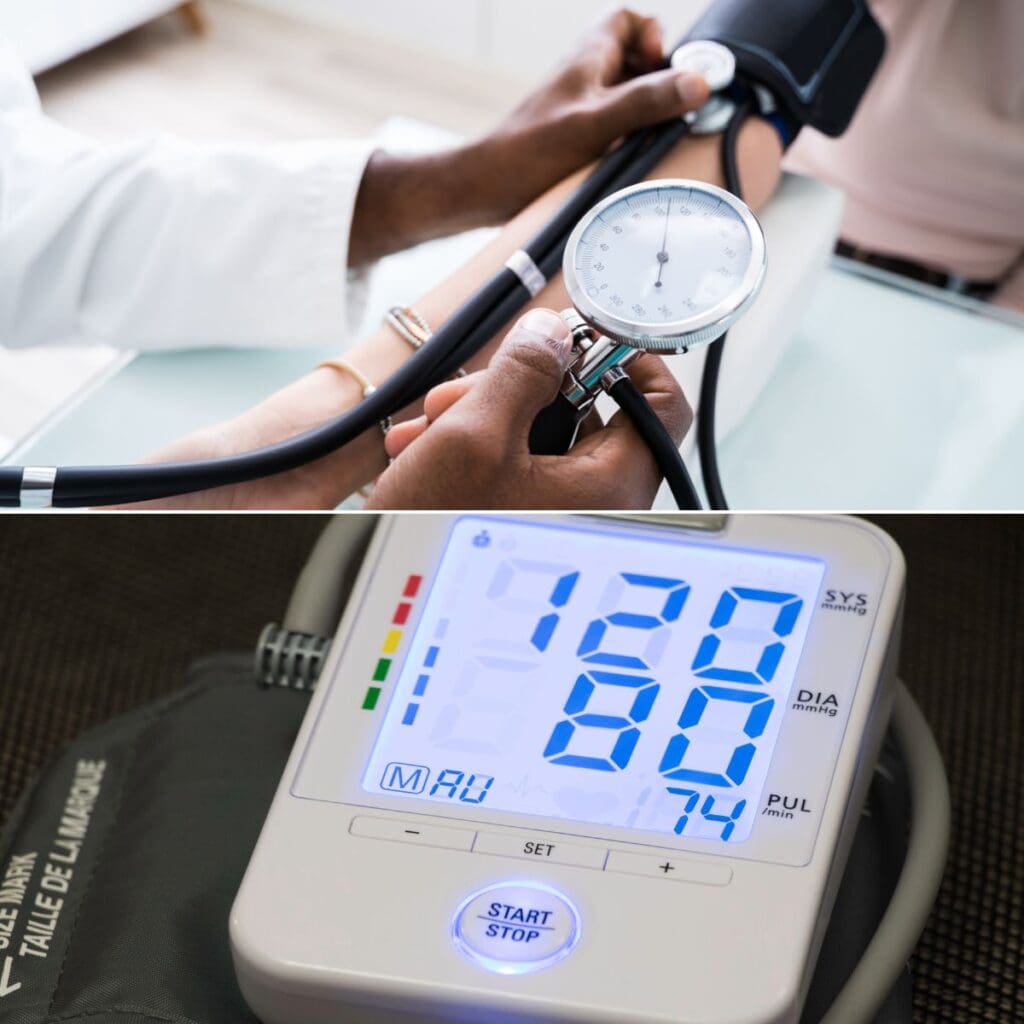
6. Protein Boosts Your Immune System
Along with certain vitamins and minerals, your immune system also runs on proteins. Your white blood cells, in particular, require protein to function and to combat infections, inflammation, and diseases.
The antibodies produced by white blood cells in response to infections are also proteins.
“Proteins represent important macronutrients for the immune system, considering that amino acids are essential for the synthesis of immune proteins, including cytokines and antibodies that mediate immune responses,” according to research from 2021.
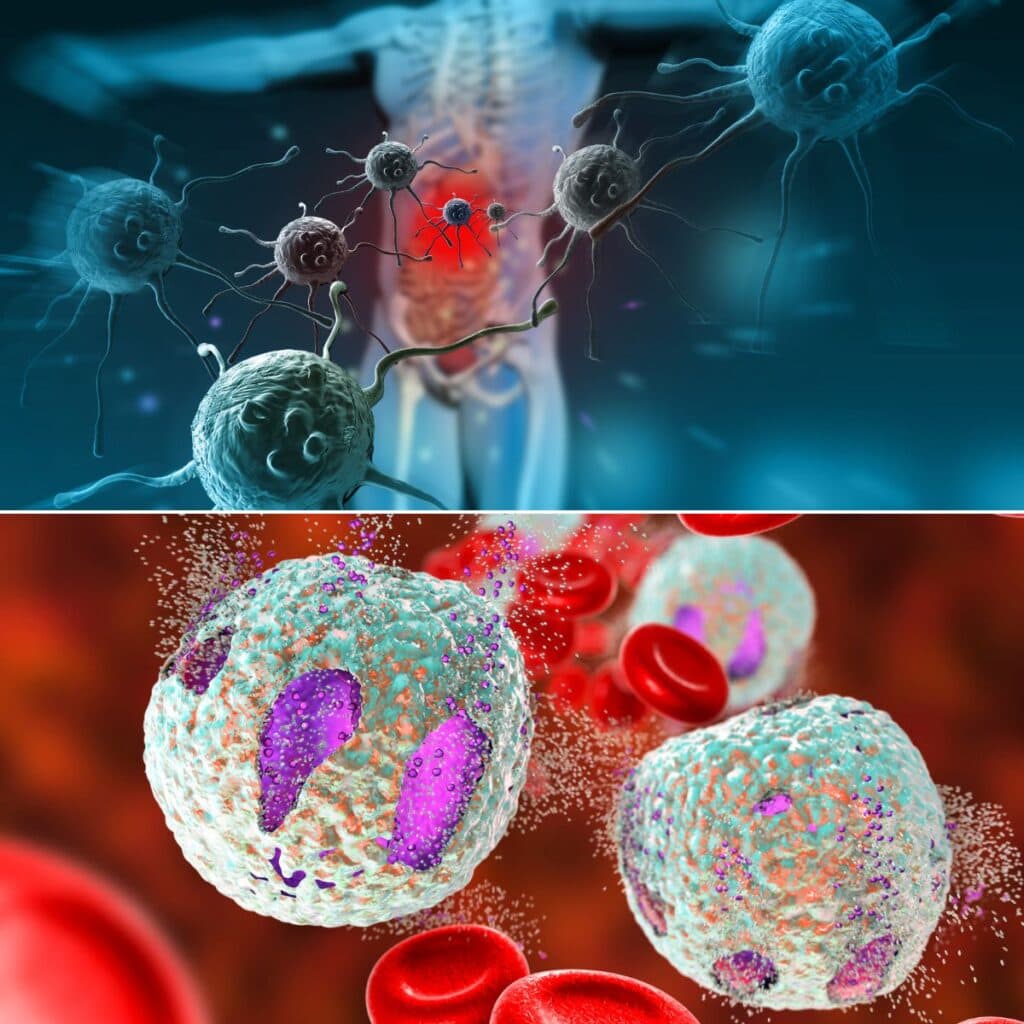
How Much Protein Should You Eat?
Minimal Amount of Protein Per Day
The recommended dietary allowance (RDA) for protein currently stands at 0.8 grams per kilogram of body weight (or 0.36 grams per pound of body weight) per day. This is the minimum amount of protein an individual should eat to meet their most basic nutritional needs and avoid getting sick.
It’s very important to make the distinction between this absolute minimum protein requirement and the amount of protein that’s optimal for your lifestyle.
Everyone should eat at least 0.8 grams per kilogram of body weight every day, but at the same time, almost everyone would benefit from eating significantly more.
I’ll repeat it again: the RDA is the threshold between getting sick from a protein deficiency and not getting sick. It is not the amount of protein you need to live your best and healthiest life, which is almost certainly higher.
Optimal Amount of Protein Per Day
Evidence provided by this study and this study suggests that the daily minimum protein need could be as high as 1.2-1.3 grams per kilogram of body weight (0.55-0.59 grams of protein per pound of body weight) for people who don’t exercise.
Simply put, you need a relatively small amount of protein to survive, but you need a lot more to actually thrive.
People who do exercise, however, may benefit from eating as much as 2.2 grams per kilogram of body weight (1 gram per pound of body weight). Moreover, this may even be a good goal for sedentary people as well, as it’s likely that more calories coming from protein, rather than from carbs and fats, will benefit overall health goals.
To everyone who doesn’t have a known disease and is otherwise healthy, I’d recommend aiming for those 2.2 grams of protein per body weight (1 gram per pound) each day. This is regardless of whether or not you exercise a lot.
Very active people will benefit from this amount of protein because it’ll help them repair muscles, grow muscles, and recover after a workout.
Sedentary people, many of whom tend to be overweight or undermuscled, will benefit from eating more protein for the reasons I outlined above.
For those people, the reasons to prioritize protein include reduction in hunger, boost in metabolism, better working immune system, and stronger bones. Along with a good nutrition program, increased protein intake will likely help you lose fat.
Another way of determining the range of protein you should eat on a daily basis is a percentage of your overall calories. It’s generally advised to keep your protein intake between 10% and 35% of your daily calories.
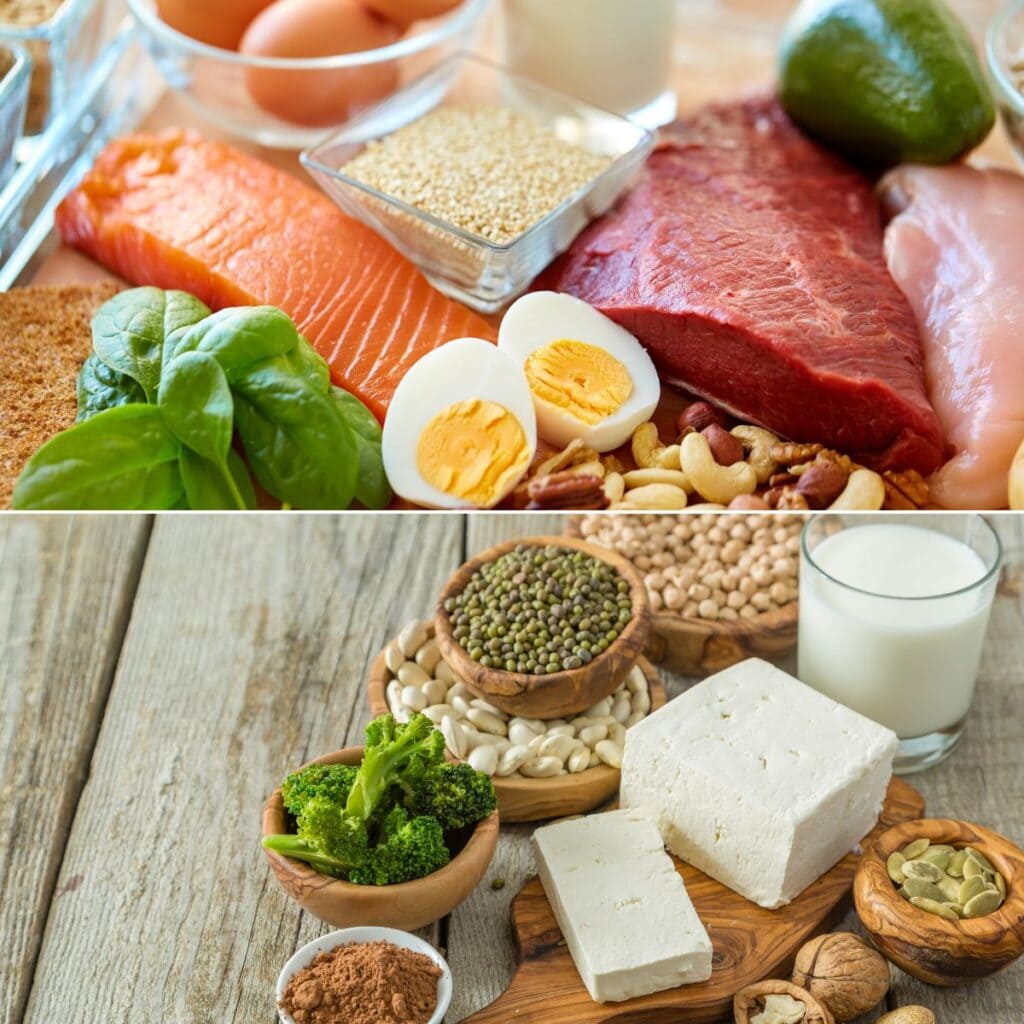
Can You Eat Too Much Protein?
Additionally, it’s also worth noting that for healthy people without kidney disease, there are little, if any, risks to overconsuming protein. There are certainly fewer risks involved in overeating protein than there are in overeating carbs (diabetes) or fats (weight gain, heart disease).
A number of studies show that overeating protein does not eventually result in an increase in body fat. This is, of course, provided that you don’t overconsume calories in general.
I’d recommend aiming for those 2.2 grams per kilogram of body weight (1 gram per pound) and not eating more than 35% of your calories from protein.
What Are the Best Sources of Protein?
The best protein sources are those that contain all nine essential amino acids. They’re known as “complete proteins.” Remember that you must consume all nine EAAs in your diet and the following foods are the best way to do so.
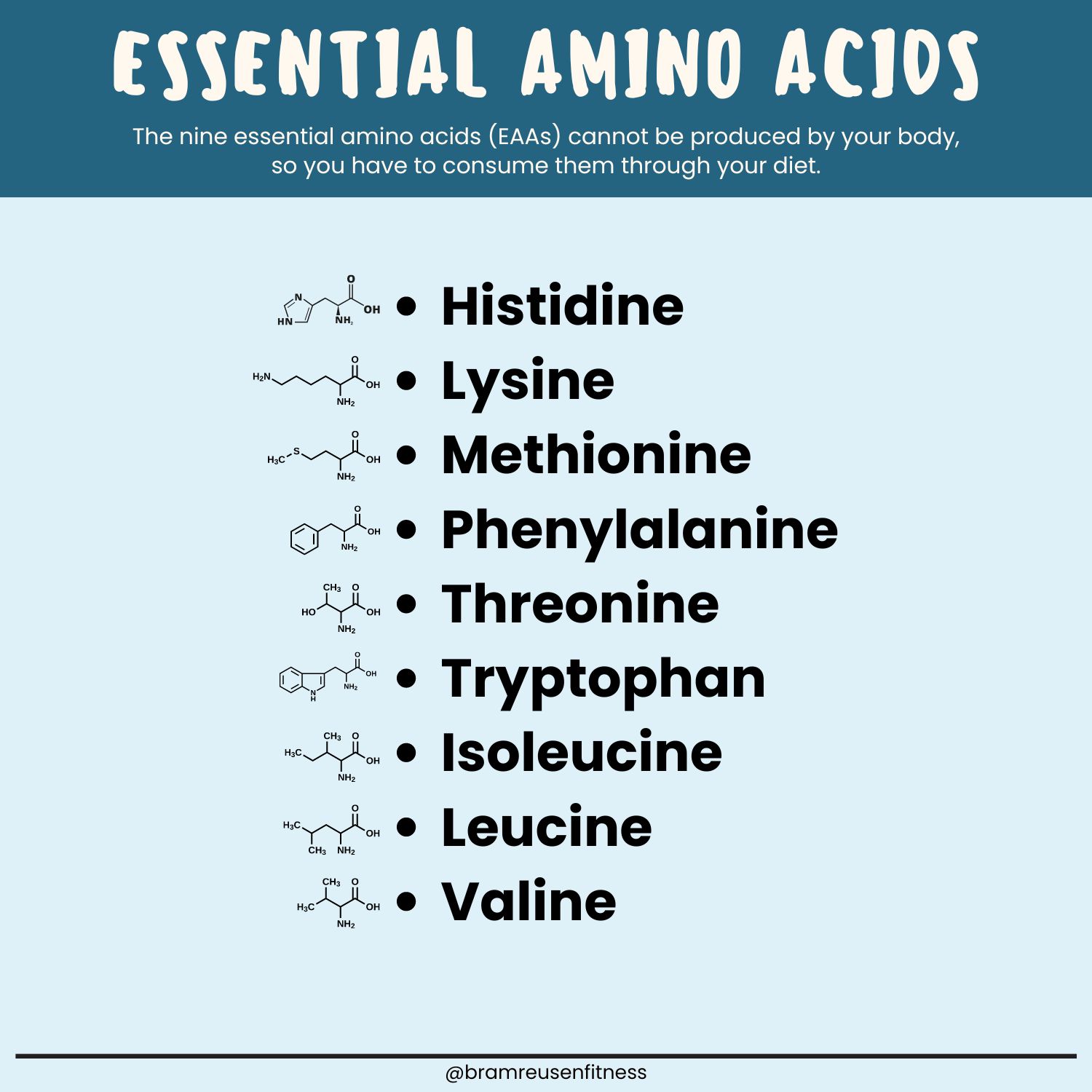
Best Animal-Based Complete Protein Sources
- Eggs
- Lean beef
- Poultry
- Pork
- Venison
- Fish
- Milk
- Greek yogurt
- Cottage cheese
- Cheese
- Whey protein
Best Plant-Based Complete Protein Sources
- Soy (tofu, soymilk, edamame)
- Hemp seeds
- Quinoa
- Buckwheat
- Chia seeds
Incomplete Protein Source Combinations
It’s also possible to create a complete protein meal by combining two or more sources of incomplete proteins. Excellent examples include the following:
- Wholewheat bread and peanut butter
- Brown rice and black beans
- Wholegrain pita and hummus
- Pasta and peas
- Corn tortillas and refried beans
